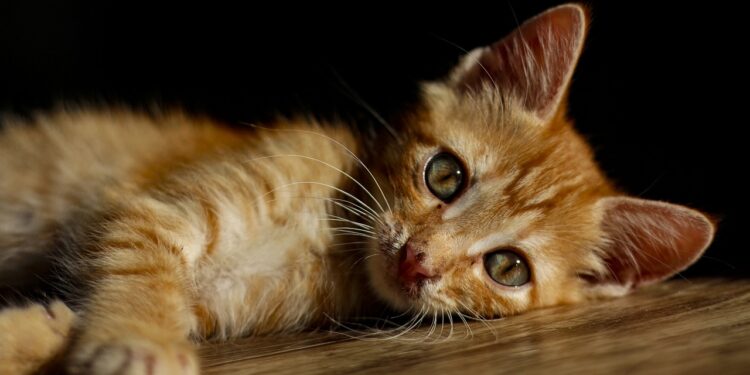Introduction
As a cat owner, it can be concerning to see your feline companion throwing up undigested food, even if they appear otherwise healthy and are acting normal. Vomiting in cats is not uncommon, but when it involves undigested food, it raises questions about their digestive health and eating habits. While occasional vomiting may not be a cause for alarm, frequent episodes could indicate an underlying issue that needs attention.
In this article, we’ll explore the possible reasons why your cat might be throwing up undigested food while acting normal, when to be concerned, and how to address the issue. By understanding the potential causes and solutions, you can ensure your cat stays healthy and comfortable.
1. What Does It Mean When a Cat Throws Up Undigested Food?
When a cat vomits undigested food, it typically means the food hasn’t had time to pass through the stomach into the intestines. This can occur shortly after eating and is often mistaken for regurgitation. Vomiting involves active abdominal contractions, while regurgitation is a passive process where food comes up without effort.
Key Characteristics of Vomiting Undigested Food:
- Timing: Occurs shortly after eating.
- Appearance: Food is intact and looks similar to how it was eaten.
- Behavior: The cat often acts normal before and after vomiting.
While occasional vomiting of undigested food may not be serious, frequent episodes could signal an underlying issue.
2. Common Causes of Cats Throwing Up Undigested Food
There are several reasons why your cat might vomit undigested food while still acting normal. These range from benign causes to more serious health concerns.
2.1 Eating Too Quickly
One of the most common reasons for vomiting undigested food is eating too quickly. When cats gulp down their food, they may swallow air along with it, causing the stomach to become distended and leading to regurgitation or vomiting.
- Signs: Vomiting occurs immediately after eating.
- Solution: Use a slow feeder bowl or spread food out on a flat surface to slow down eating.
2.2 Overeating
If a cat eats more than their stomach can handle, it may result in vomiting undigested food. This is more common in multi-cat households where competition for food occurs.
- Signs: Vomiting occurs after eating large meals.
- Solution: Feed smaller, more frequent meals to prevent overeating.
2.3 Food Intolerance or Sensitivity
Certain ingredients in your cat’s food may not agree with their digestive system, leading to vomiting. Common culprits include artificial additives, low-quality proteins, or grains.
- Signs: Vomiting occurs consistently after eating specific foods.
- Solution: Switch to a high-quality, limited-ingredient diet or consult your veterinarian for dietary recommendations.
2.4 Hairballs
Hairballs are a common issue in cats, especially those with long fur or who groom excessively. Hair that accumulates in the stomach can interfere with digestion and cause vomiting.
- Signs: Vomiting may include hair along with undigested food.
- Solution: Use hairball remedies, such as specialized diets or lubricating gels, and groom your cat regularly.
2.5 Gastritis (Stomach Irritation)
Gastritis occurs when the stomach lining becomes irritated, often due to eating spoiled food, plants, or foreign objects. While mild cases may resolve on their own, chronic gastritis can lead to frequent vomiting.
- Signs: Vomiting occurs sporadically, often after eating.
- Solution: Provide a bland diet and monitor for improvement. If symptoms persist, consult a veterinarian.
2.6 Megaesophagus
Megaesophagus is a condition where the esophagus becomes enlarged and loses its ability to push food into the stomach effectively. This can cause regurgitation of undigested food.
- Signs: Vomiting occurs shortly after eating, often in a tube-like shape.
- Solution: Consult a veterinarian for diagnosis and management, which may include feeding your cat in an elevated position.
2.7 Stress or Anxiety
Stress can disrupt your cat’s eating habits and digestion, leading to vomiting. Changes in routine, a new pet, or environmental stressors can trigger this behavior.
- Signs: Vomiting occurs during or after stressful events.
- Solution: Identify and reduce stressors, and consider using calming aids like pheromone diffusers.
2.8 Underlying Medical Conditions
Certain medical conditions, such as inflammatory bowel disease (IBD), pancreatitis, or food allergies, can cause vomiting of undigested food.
- Signs: Vomiting is frequent and may be accompanied by diarrhea, weight loss, or lethargy.
- Solution: Seek veterinary care for diagnosis and treatment.
For more on common causes of vomiting in cats, visit this guide on feline digestive health.
3. When Should You Be Concerned?
While occasional vomiting of undigested food may not be serious, there are certain signs that indicate a need for veterinary attention.
Red Flags:
- Vomiting occurs more than once a week.
- Your cat shows additional symptoms, such as lethargy, diarrhea, or loss of appetite.
- Vomit contains blood or bile.
- Your cat is losing weight or appears dehydrated.
If you notice any of these symptoms, contact your veterinarian promptly.
4. How to Help Your Cat at Home
If your cat is otherwise healthy and the vomiting appears to be an isolated incident, there are steps you can take to help them recover and prevent future episodes.
Home Care Tips:
- Slow Down Eating: Use a slow feeder bowl or place obstacles in their food dish to prevent gulping.
- Feed Smaller Meals: Divide their daily food into smaller, more frequent portions.
- Switch to High-Quality Food: Choose a diet with easily digestible ingredients and avoid artificial additives.
- Hydration: Ensure your cat has access to fresh water to prevent dehydration.
- Groom Regularly: Brush your cat to reduce hair ingestion and the risk of hairballs.
If vomiting persists despite these measures, consult your veterinarian.
5. Preventing Vomiting of Undigested Food
Prevention is key to keeping your cat’s digestive system healthy and reducing the likelihood of vomiting.
Tips for Prevention:
- Establish a Feeding Routine: Feed your cat at the same times each day to create a consistent schedule.
- Avoid Overfeeding: Measure portions according to your cat’s weight and activity level.
- Monitor for Food Sensitivities: Pay attention to how your cat reacts to different foods and adjust their diet as needed.
- Reduce Stress: Create a calm, stable environment for your cat, especially during mealtimes.
- Regular Vet Check-Ups: Routine veterinary care helps identify and address potential health issues early.
For more prevention tips, explore this guide to feline care.
FAQs About Cats Throwing Up Undigested Food
1. Is it normal for cats to vomit undigested food occasionally?
Yes, occasional vomiting of undigested food can be normal, especially if your cat eats too quickly or has an empty stomach. However, frequent episodes should be evaluated by a veterinarian.
2. What should I do if my cat vomits undigested food multiple times?
If your cat vomits undigested food repeatedly, monitor for additional symptoms and contact your veterinarian. Persistent vomiting could indicate an underlying health issue.
3. Can stress cause my cat to vomit undigested food?
Yes, stress or anxiety can disrupt your cat’s eating habits and digestion, leading to vomiting. Identifying and addressing the source of stress can help.
4. Should I change my cat’s food if they vomit undigested food?
If you suspect a food intolerance or sensitivity, switching to a high-quality, limited-ingredient diet may help. Consult your veterinarian before making significant changes to your cat’s diet.
5. When should I take my cat to the vet for vomiting?
Seek veterinary care if vomiting occurs more than once a week, is accompanied by other symptoms (e.g., lethargy, diarrhea), or if your cat shows signs of weight loss or dehydration.
Conclusion
While occasional vomiting of undigested food may not be a cause for concern, frequent episodes could indicate an underlying issue that needs attention. By understanding the potential causes and taking preventive measures, you can help ensure your cat’s digestive health and overall well-being. If the vomiting persists or is accompanied by other symptoms, don’t hesitate to consult your veterinarian for a thorough evaluation.
For more expert advice on feline health, explore our comprehensive cat care resources.


















